Lecture 20: Stacks Continued
Last Time
Introduced stack abstract data type
public interface SimpleStack<T> {
// push a new item on the top of the stack
public void push(T item);
// return the item currently at the top of the stack
public T peek();
// remove and return the item currently at the top of the stack
public T pop();
// check if the stack is empty
public boolean isEmpty();
}
Interpretation of Stack Operations

Push Sequential…Algorithms onto stack
Stack Operations

Push Art of Multiprocessor Programming onto stack
Stack Operations

Push Java Concurrency in Practice onto stack
Stack Operations

Peek returns Java Concurrency in Practice
Stack Operations

Pop returns & removes Java Concurrency in Practice
Stack Operations

Pop returns & removes Art of Multiprocessor Programming
You Were Asked
How could you use a linked list to store the contents of a stack?
- How do you push a new item on the stack?
- How do you pop an item off the stack?
Idea
- Elements stored in linked list of
Nodes - Store a
Node topreferring to top of stack - Each
Node’snextfield refers to element below it
StackList Illustrated
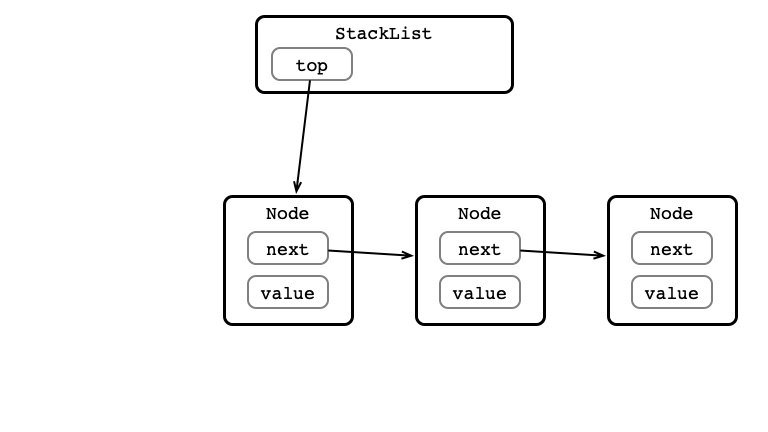
push() Step 1: Create Node
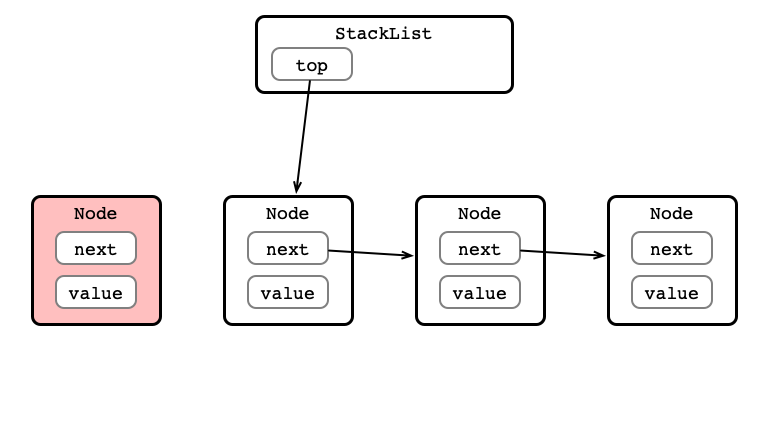
push() Step 2: Set next
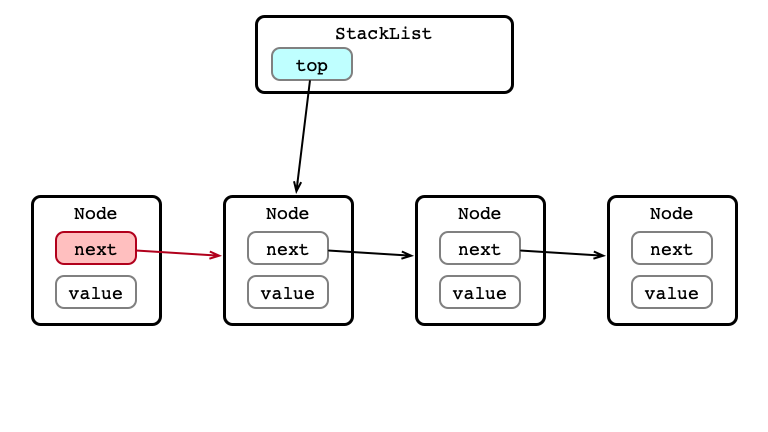
push() Step 3: Set head
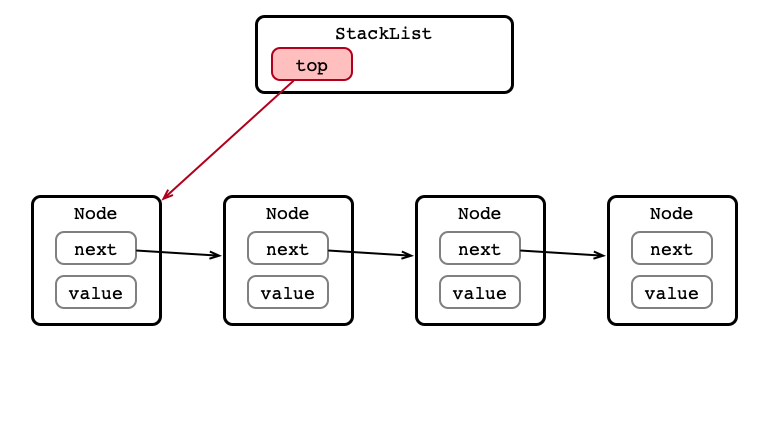
push() Complete
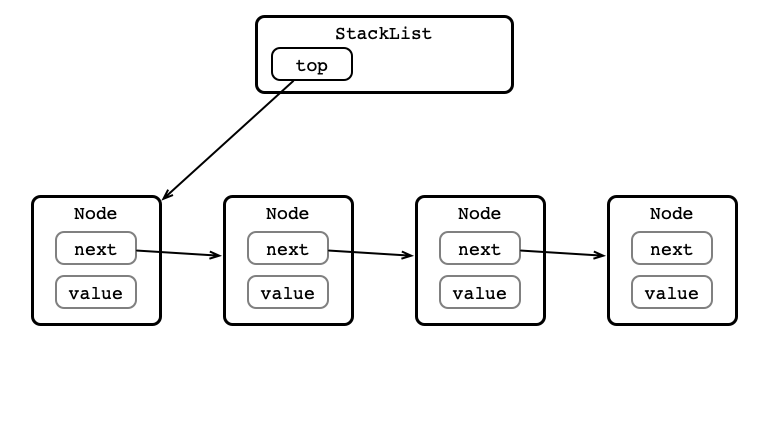
pop()?

pop() Step 1: Store value
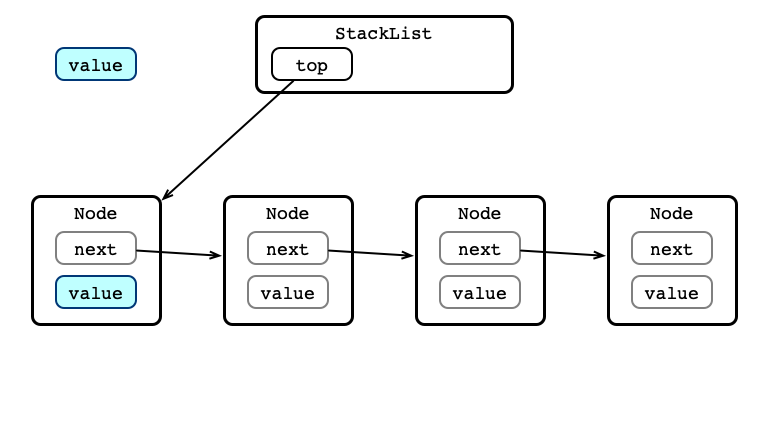
pop() Step 2: Update head
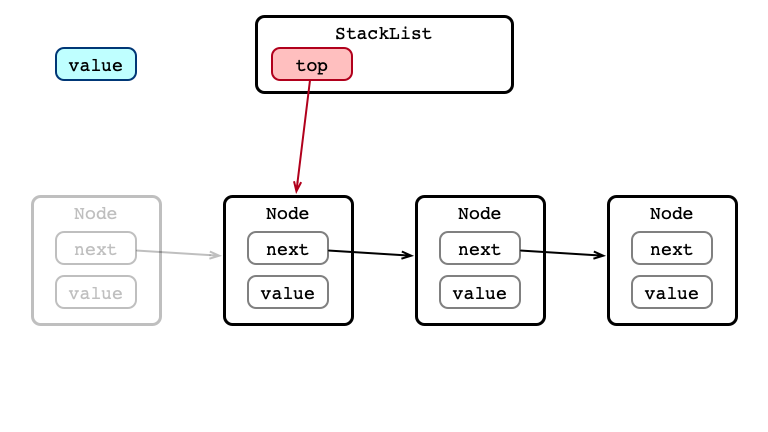
pop() Step 3: Return value
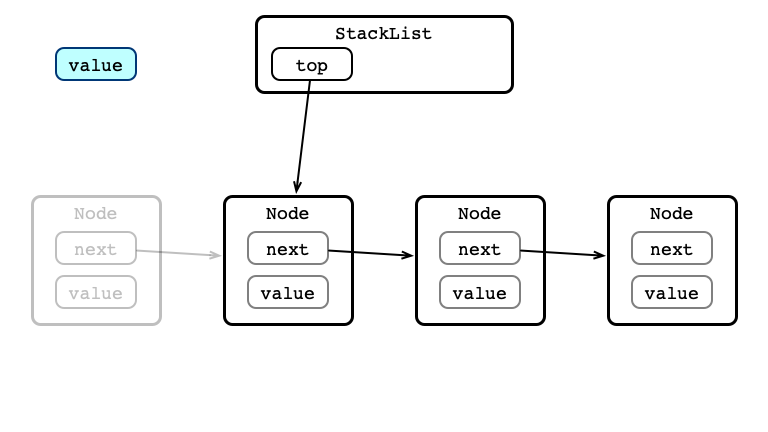
Implementing StackList<T>
public class StackList<T> implements SimpleStack<T> {
Node top = null;
public void push(T item) {...}
public T peek() {...}
public T pop() {...}
public boolean isEmpty() {...}
class Node {
T item;
Node next;
public Node (T item) {
this.item = item;
next = null;
}
}
A Question
What is wrong with the following program?
public class HelloWorld {
public static void main(String[] args)} {
System.out.println("Hello, World!");
}
}
Application: Balanced Expressions
Java uses a lot of brackets:
- curly braces
{ ... } - parentheses
( ... ) - square brackets
[ ... ]
If expression are properly bracketed, Java compiler complains!
An Abstraction
This expression
public class HelloWorld {
public static void main(String[] args)} {
System.out.println("Hello, World!");
}
}
but with just the brackets:
{ ( [ ] ) } { ( ) } }
Question
When is an expression properly bracketed?
- What makes
{ } { { } { { } } } { }okay? - What makes
{ ( [ ] ) } { ( ) } }not?
Balanced Expressions
A bracketed expression is balanced if
- every opening bracket has a corresponding closing bracket
- closing bracket appears after opening bracket
- one-to-one correspondence between opening and closing
- opening-closing pairs are nested
- if opening bracket appears between opening-closing pair, then corresponding closing bracket does too
{ { { } } { } { } }
{ { } } } { }
How To Check For Balance?
{ { { } } { } { } }
Balance Checking with a Stack
- Scan expression from left to right
- Whenever an open bracket is encountered, push it to the stack
- When a closing bracket is encountered:
- check if it matches top of stack
- if so, pop the stack
- if not, or stack is empty, expression is not balanced!
- If stack is not empty at end of expression, expression is not balanced!